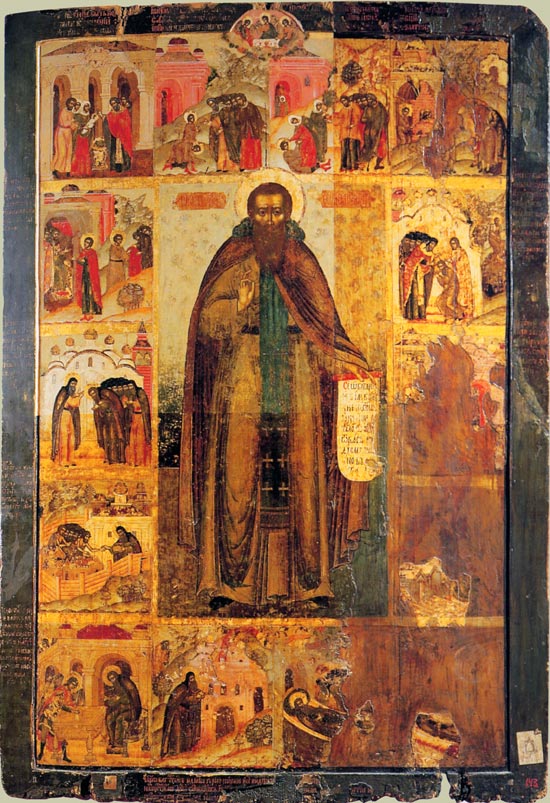As someone who bears the surname Feschuk, I’ve always been curious about its origins and meanings. Growing up, I pronounced it as Fes-chuck, but through research for this article, I learned that the correct pronunciation is Fes-chook (Фещук). I was never able to locate much information on the name in English, so I decided to research and write this article. Here’s what I uncovered.
Origins and Meanings
The surname Feschuk belongs to an ancient and widespread category of Eastern Slavic family names that originated from diminutive forms of baptismal names. These names, often adapted from Greek, Latin, or Hebrew sources after the Christianization of Rus’ in 988 AD, were localized into Slavic forms through everyday usage. Two possible baptismal names that may have led to the formation of Feschuk are:
- Thespesios (Greek: θεσπέσιος)
- Meaning: “Divine” or “Prophetic.”
- This name entered Rus’ through Orthodox Christian tradition and became popular among Eastern Slavs. The diminutive form Fesko (Фесько) likely evolved from this canonical name. Historical records associate this name with saints, including the Holy Martyr Thespesios, further reinforcing its religious significance.
- Theodosios (Greek: Θεοδόσιος)
- Meaning: “God-given.”
- Another plausible source for Fesko (Фесько), this name was commonly given to children born on the feast day of Saint Theodosios of the Caves (Феодосій Печерський), a revered figure in Eastern Orthodox Christianity and the founder of Kyiv Pechersk Lavra. The name reflects gratitude and divine blessing.
The suffix -uk (-ук) in Feschuk (Фещук) often indicates “son of” or “grandson of,” tying the bearer of the surname to an ancestor named Fesko (Фесько).
Linguistic Development
The transformation of the name Fesko (Фесько) into Feschuk (Фещук) involved several typical phonetic processes in Ukrainian and Belarusian naming traditions:
- The diminutive suffix -ko (-ко) often appeared in personal names.
- Adding the family suffix -uk (-ук) created a surname indicating “descendant of” or “associated with” the name’s bearer.
- Phonetic shifts:
- The sound k (к) softened into ch (ч) before the -uk (-ук) suffix.
- The sequence sch or shch merged into a single sound shch (щ) in Ukrainian phonetics.
This process resulted in the modern form Feschuk (Фещук).
Pronunciation
The pronunciation of Feschuk in Ukrainian and Russian is similar due to the shared use of the Cyrillic alphabet. In Ukrainian (Фещук), it is pronounced as:
- Fes-chook (Фес-чук) (IPA: /ˈfɛs.tʃʊk/)
- Ф (F): Like “f” in “fun.”
- е (e): Like “e” in “bet.”
- щ (shch): A soft combination of “sh” and “ch,” often simplified to “ch.”
- у (u): Like “oo” in “boot.”
- к (k): Like “k” in “key.”
Saints Associated with the Name
Saint Thespesios (Святий Феспесій)
Saint Thespesios is a revered figure in Orthodox Christianity, celebrated for his steadfast devotion and ultimate sacrifice. As one of the martyrs of Gangra, he is remembered for standing firm in his faith during periods of persecution under Roman rule. His feast day, observed on March 20th, is shared with other martyrs who endured similar trials. The story of Saint Thespesios highlights the virtues of perseverance, courage, and divine inspiration, making him an emblem of spiritual strength for generations. His life and martyrdom continue to be a source of inspiration for those seeking to uphold their beliefs in the face of adversity. As one of the martyrs of Gangra, he is remembered for standing firm in his faith during periods of persecution. His feast day, observed alongside fellow martyrs, is a time to honor the resilience and courage he demonstrated in defending his beliefs. The story of Saint Thespesios highlights the virtues of perseverance and divine inspiration, making him an emblem of spiritual strength for generations.
Saint Theodosios of the Caves (Святий Феодосій Печерський)
Saint Theodosios is one of the most influential figures in the history of Eastern Orthodoxy and Ukrainian Christianity. Born in the 11th century, he became the founder of the Kyiv Pechersk Lavra, a monastic community that remains a cornerstone of spiritual life in the region. Renowned for his humility, ascetic lifestyle, and dedication to communal prayer, Theodosios embodied the ideals of selflessness and devotion. His feast day, celebrated on May 3rd in the Orthodox calendar, honors his contributions to the faith and his role in establishing traditions that continue to guide monastic life today. His legacy is a testament to the enduring power of faith and the transformative impact of spiritual leadership.
Sources and References
The information presented is derived from the following resources:
- Linguistic and Onomastic Studies:
- Veselovsky S.B. Onomasticon (Ономастикон, Веселовский С.Б.).
- Unbegaun B.O. Russian Surnames.
- Tupikov N.M. Dictionary of Old Russian Personal Names (Словарь древнерусских личных имен, Тупиков Н.М.).
- Superanskaya A.V. Dictionary of Russian Personal Names (Словарь русских личных имен, Суперанская А.В.).
- Religious and Historical Contexts:
- Orthodox Christian naming traditions, including the influence of saints such as Theodosios of the Caves (Феодосій Печерський) and Thespesios (Феспесій).
- Eastern Orthodox calendars and records of saint feast days.
- Linguistic Analysis of Surnames:
- Ukrainian Onomastics: A Study of the Origin and Structure of Surnames (Українська ономастика: дослідження походження та структури прізвищ) by Mykhailo Kamenetsky (Михайло Каменецький).
- A Handbook of Ukrainian Surnames by George Shevelov.
- Cultural Insights:
- Traditions of Slavic surname formation during the Grand Duchy of Lithuania (Велике князівство Литовське).
- Ukrainian linguistic databases and Cyrillic phonetic studies.
